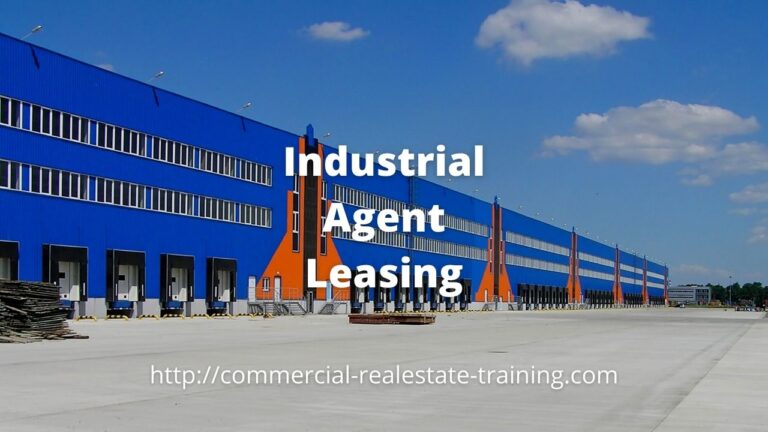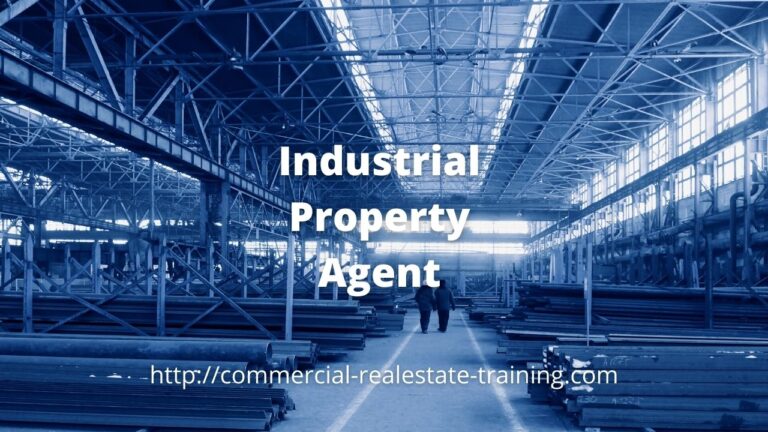How to Be an Expert in Industrial Property Sales and Leasing
Industrial property remains one of the easier market segments in which you can get a foothold as a top broker or agent. The fact of the matter is that industrial premises are always required for changing business activity by good tenants and businesses. The industrial segment is for ever changing and it is not a complex property type. This industrial property diagram will help you understand the segment.
In saying all of this there can be an over-saturation of local industrial property supply and a lessening of demand from time to time, but the property segment remains active for those agents that specialise. It is a matter of the agent knowing the right businesses locally and what they are doing in business activity, lease occupation, and production. Prospecting, cold calling, and constant contact will be a big part of growing your activity in the property segment.
Here are some facts to look for:
- Pressures of expansion or relocation for some businesses will push them towards another property
- Lease expiry can force them to look at different leasing packages elsewhere
- Shifts in roads and highways can change the location outlook for some businesses
- Access to ports, airports and highways can be an important cost factor in property selection or change
- Difficult landlords and lease conditions will push another property decision for some businesses
- Some successful businesses look to do a sale and lease back to shift some of their assets and free up some capital for a shift in business direction
So you can do some exciting things with these issues. As an industrial property expert you can be the solution for many businesses in relocating and expanding or contracting. The value that you can bring to industrial property tenants will be in market coverage, property knowledge and negotiation experience.
To help with all of this you can create a checklist to use in discussions with industrial type tenant presentations or meetings. Here are some of the bigger industrial issues in that ‘site selection’ checklist to get you started:
- Size – What property size will suit their needs? There will be differences between warehouse, office and hardstand space. There may also be considerations for loading and unloading of goods on site.
- Zoning and Use – The permitted use of the property should match the zoning capabilities of the property and the location. Find out as much as you can about zoning regulations as they apply to industrial property in your town or city.
- Adaptability – How adaptable is a property to the potential tenant or purchaser? Are there some factors of use and improvement configuration that will suit particular occupants? That may narrow or define your tenant type and marketing focus.
- Improvements, Services, and Amenities – All of these factors will have relevance to the use of the property. Check out the property for quality of improvements, the availability of services and the capability of the amenities to service the occupants. Within this topic you will have special factors to check out including warehouse size, height, configuration, access and special issues such as security and fire prevention infrastructure.
- Environmental – Some businesses will create challenges for the environment and special property locations will be required. Noise, dust, leakage, run-off, and other critical issues will require consideration. Engineers and architects could be required to advise an industrial tenant as to how a property should be handled within those categories.
- Car parking – The ability of the on-site car park to service staff and customer needs will be critical to some businesses. In many industrial property locations the availability of street parking is very limited or perhaps not allowed. Check out the issue at the local council.
- Traffic and Congestion – Look at how a business will trade from a particular location and how roads and access can impact that trade potential. On a busy road you may find that branding and signage may be important considerations for some industrial tenants.
So there are some real factors of specialization that you can bring to the industrial property type; be it in sale or leasing activity. Create a property inspection strategy or system that you can use in every new listing that you take to the market.
Get to know the local businesses comprehensively and predict the property changes that those businesses may require.






